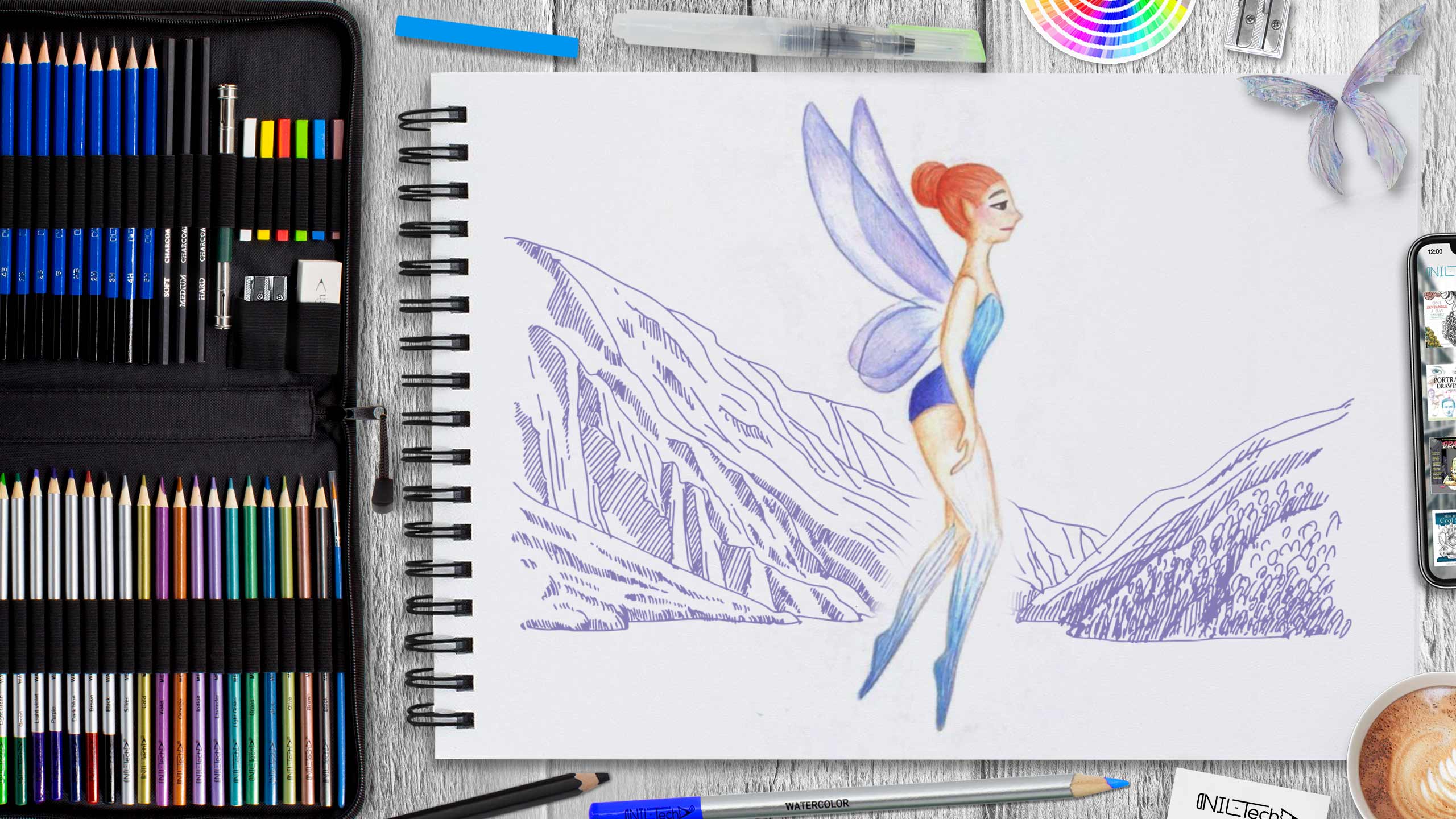
How to Draw Fairy for International Fairy Day
Jun 24 , 2021

International Fairy Day honours Fantasy, imagination and a little bit of pixie dust come collectively. These tiny mythical creatures have captivated myth and legend for generations. Today the wee folk's stories are immortalized throughout animated stories, little field displays, and children's books. There are the brownies and fairies that barely favored the delight looking fairies depicted in movie and art today. They were, though, useful little beings, doing household jobs and the wearisome jobs that leave us mere humans tired out at the end of the day.
Interesting Facts About Fairies:
1. You can spell "fairy" any way you desire.
Aside from the conventional "fairy" found in dictionaries, lots of popular authors and poets spell the word "faerie" or "faery."
2. Fairies speak in the language of gifts.
Fairies love to provide presents, and they enjoy receiving them. Their favorites are small glossy items! So If you want to befriend a fairy, offer a present initially.
3. W. Y. Evans-Wentz, in his "The Fairy-Faith in Celtic Countries" (1911) presents a living testament of fairies.
The book contains details about fairy theories from Celtic times, and it examines if fairy life could be a reality.
4. One of the earliest claims of a person making contact with a fairy was tape-recorded in 1907.
Lady Archibald Campbell interviewed an old blind guy and his spouse, who claimed to have captured a fairy and kept it as a slave for 2 weeks before it escaped.
5. The most famous case of 'fairy contact' was in 1917. The claim came from Elsie Wright, age 16, and Frances Griffiths, 10, who lived in the small Yorkshire village of Cottingley, England.
The 2 children claimed they saw and played with fairies near a brook in the local countryside. No one believed them, so they borrowed a camera and produced photographs of their fairies.
Let's Draw Fairy Step by Step
In this tutorial we used the following supplies:
- Pencil B
- Colored pencils
- beige
- orange
- blue
- cyan
- turquoise
- red
- dark brown
STEPBYSTEP10

Step 1. We begin construction by marking the head and joints with the help of circles and with direction lines. (Pencil B)

Step 2. Next, with the use of circles and line again, we draw the contour in front of the body and legs (Pencil B)

Step 3. Draw the back of the body, the shape of the arm, and wings. (Pencil B)

Step 4. Remove all unnecessary construction lines and draw the face, hair, costume. (Pencil B)

Step 5. Outline the outline with colored pencils. We use beige for the skin, orange for the hair, blue for the suit and wings, red for the lips, and dark brown for the eyebrow with the evil eye. (Colored pencils beige, blue, red, dark brown, orange)

Step 6. Making the general tone of the picture. We paint everything according to the color of the contour, except for the wings, we use blue there, and the suit, we use blue at the bottom, and turquoise at the top. (Colored pencils beige, orange, blue, cyan, turquoise)

Step 7. We turn to the drawing of the costume. For this we use blue and turquoise. With the help of blue, we make patterns in stripes on both the legs and the body. (Colored pencils blue, turquoise)

Step 8. Next, work through the rest of the drawing. We use brown for the shadows on the skin, and with the help of burgundy, we make a blush on the cheek. Use orange for the hair and red for the eyeshadow. We paint over the rabbit with the help of lilac, and also we make the highlights with pink. (Colored pencils pink, brown, burgundy, orange, red, lilac)
STEPBYSTEP10
Go ahead and share this tutorial to your friends! Click the social media links below 👇
 |
Drawing Pencil SetExcellent GIFT IDEA - Non-Toxic and safe, easily portable and made with quality top-notch materials. Basic and innovative drawing supplies come together in NIL Tech set as an exceptional replacement for old-fashioned pencil boxes. The main attraction at any occasion from your drawing enthusiast friends, sketchers, artists to your kids or students boosting their creative projects and enjoy their ear-to-ear smile! |






